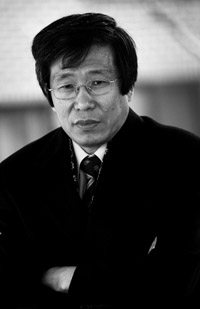 By Kim Seong-kon, Professor of English Literature
By Kim Seong-kon, Professor of English Literature When people write in a foreign language, they try to show off their intellectual sophistication by using flamboyant words, pretentious expressions and inflated style. There was one Korean scholar who first wrote in simple English and then changed his words into pedantic ones mostly stemmed from Latin or Greek. Perhaps he wanted to make his writing look more refined, but the result almost always displayed a serious lack of precision. This is especially true for nonnative speakers of English who write in English.
Indeed, it would be awkward if we wrote,"Corpuscle liquid is being emitted," when we could simply write,"He's bleeding." But such awkward expressions can be found in academic articles, legal documents, and medical reports. Especially, scholars from non-English speaking countries tend to write unnecessarily abstract articles even when they can write in plain English. As for medical and legal terms, they are often difficult to comprehend. Lying on a surgery table, I once overheard the conversation between my doctor and his intern and found it full of medical terms indecipherable to ordinary patients. Even the police have their own jargon such as"pursuing a vehicle," dismissing more popular words like"car."
Notwithstanding the necessity of professional terminology, one must avoid writing that may be too much sophistic or pedantic. In his acclaimed essay,"Politics and the English Language," George Orwell provides a fine example. He cites from the famous passage from"Ecclesiastes":"I returned and saw under the sun, that the race is not to the swift, nor the battle to the strong, neither yet bread to the wise, nor yet riches to the men of understanding, nor yet favor to men of skill; but time and chance happen to them all." In modern English, according to Orwell, it is as follows:"Objective consideration of contemporary phenomena compels the conclusion that success or failure in competitive activities exhibits no tendency to be commensurate with innate capacity, but that a considerable element of the unpredictable must invariably be taken into account." At the first reading, few readers could make out what the writer was getting at. It just sounds so imprecise, and so pompous.
Nevertheless, Korean scholars, perhaps due to the Confucian tradition that esteems learning and formality, still seem to prefer pedantic writing. If they encounter an article marked by clarity and precision, most Korean scholars would dismiss it as a"plainly written, shallow one." But it is by no means easy to write clearly and precisely. In Korea, however, pedantic writings are often mistaken as superb articles.
Sometimes, one uses a euphemism and writes vaguely for political reasons. In South Korea, for example, where people are extremely sensitive to criticism, one should take extra caution not to offend them by criticizing directly. One of my friends once gave me some friendly advice:"When you write to criticize someone or some group," he told me,"just make it blurry, so few readers could find out what you really mean." Surely that may be a survival tactic in a turbulent society, but you will inevitably lose the strength of your writing in doing so.
George Orwell amuses us by saying,"Consider for instance some comfortable professor defending Russian totalitarianism. He cannot say outright, 'I believe in killing off your opponents when you can get good results by doing so.' Probably, therefore, he will say something like this." Then he provides a sample writing a decent professor would write:"While freely conceding that the Soviet regime exhibits certain features which the humanitarian may be inclined to deplore, we must, I think, agree that a certain curtailment of the right to political opposition is an unavoidable concomitant of transitional periods, and that the rigors which the Russian people have been called upon to undergo have been amply justified in the sphere of concrete achievement." Ugh! Even the writer himself probably would be lost in the abstract concept he inadvertently created.
Some people maintain that we should refrain from using too many colloquial expressions in writing. For example,"There is a possibility ..." may be better than"Chances are ..." while"to be sure" is more fitting than"for sure." Others argue that banal expressions such as"Enclosed please find ..." can be replaced by,"I am enclosing ..." But as always, there are no fixed rules banning colloquial or trite expressions in writing, so it largely depends on one's discretion and preference.
So to save ourselves, both from the writer's perspective and the reader's, we should make an effort to throw redundant abstraction and snobbish pedantries into the trashcan. Instead, we should value and focus on achieving clarity and precision. In this way, all writers will be one step closer to writing in a truly sophisticated and intellectual manner.

